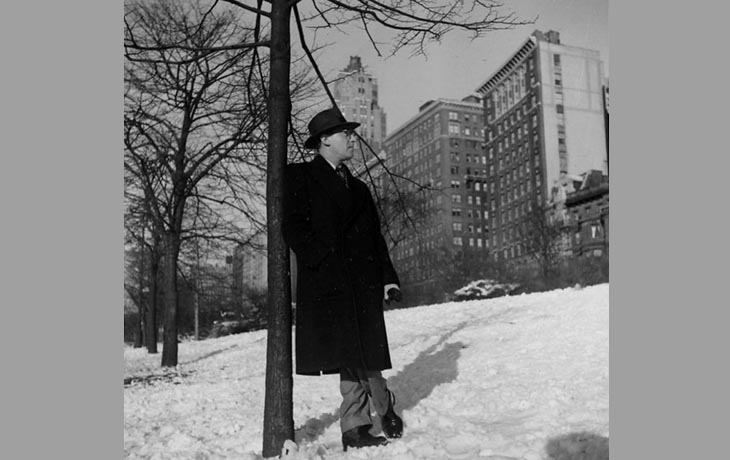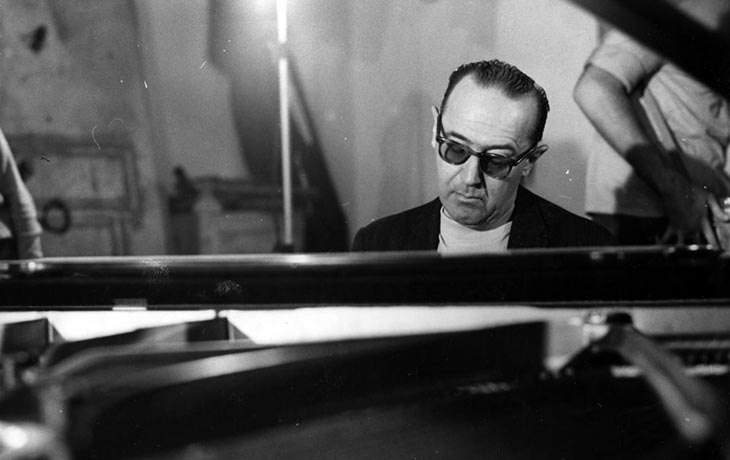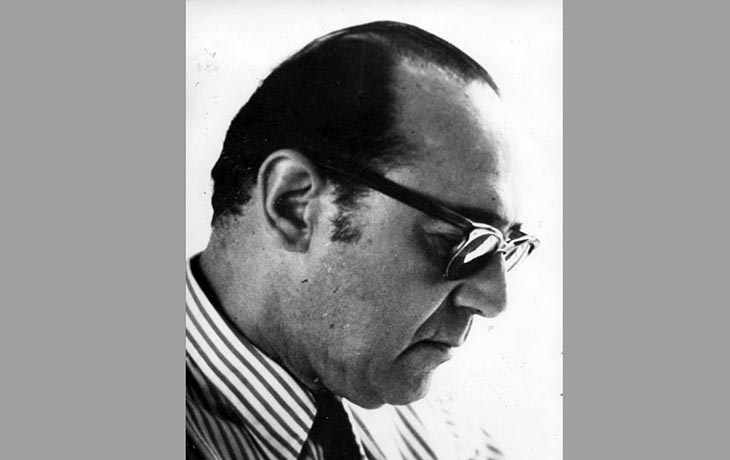From Warsaw to Tel Aviv
Moshe Wilensky was born on April 18, 1910 in Warsaw, Poland. With the outbreak of WWI, his family immigrated to the town of Mazyr in Russia, returning to Warsaw in 1917. Wilensky attended the Jewish secondary school “Ascala”, where the language of instruction was Polish. Apart from general studies (where he excelled as an amateur painter) Wilensky also studied Hebrew, Bible, and Jewish history. Wilensky completed his required studies in 1928.
Moshe Wilensky's musical talent and inclination were discovered at the age of four when he began playing on the family's piano by ear, but his formal musical studies would begin only years later. At the age of 13, Wilensky joined the youth movement “HaShomer HaTzair”, there he first learned the Eretz Israel songs by composers Joel Engel Mordechai Zeira And of people from the first aliyot The local chapter of Hashomer HaTzair had a choir that was founded and led by the composer and educator Yitzchak Edel, who Wilensky regarded as his mentor and who greatly influenced his musical path. Later on, Wilensky began studying music theory with Yitzchak Edel, and with Edel's recommendation continued on to the Warsaw Conservatory. Wilensky was accepted and immediately entered the second year of studies, graduating in 1932 from the department of composition and conducting led by Prof. Rittel.
In 1932 Wilensky made Aliyah with his family, settling in Tel Aviv. During the years 1936-1939 he studied engineering at the Heinrich Hertz Technion in Tel Aviv. In 1939 Wilensky married the actress Berta Yakimovska









![Israel Prize ceremony, 1983 [first row, from left to right: Israel Prize recipients for Hebrew Folksong Moshe Wilensky, Naomi Shemer, and Haim Hefer] (The Moshe Wilensky Archive, MUS 0069)](/media/8191/37-540x372.jpg?width=508&height=350)
![“Akum” [Association of Composers, Writers, and Publishers of Israeli Music in Israel] Prize for lifetime achievement is awarded to Moshe Wilensky, 1986 (The Moshe Wilensky Archive, MUS 0069)](/media/8192/40-540x372.jpg?width=508&height=350)






